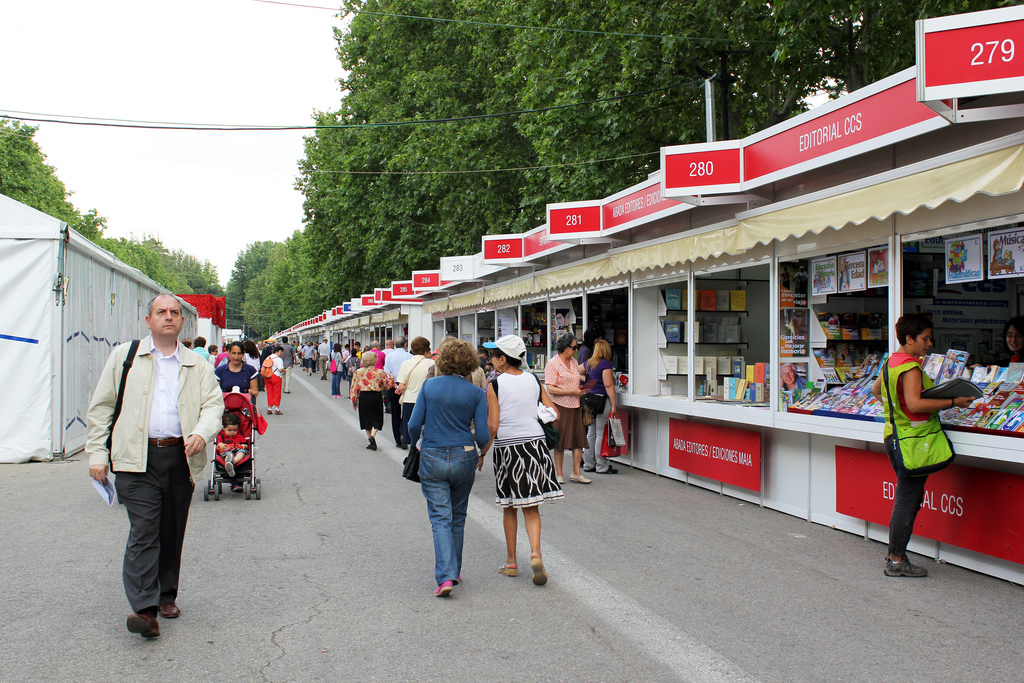A Book Fair against books, authors and publishers? It seems a joke, but it is not. The Madrid Book Fair, which opened its doors last May 26, has again denied access to publishers dedicated to self-publishing.
It is not new
Although the news has hardly had a presence in the media (why?), The fact is that the fact is not new. As reported by five of the affected publishers (Bubok, Entrelíneas Editores, Éride, Bohodón and viveLibro), it has happened since such publishers have emerged. ![]()
Bubok, for example, emerged 10 years ago, has never been able to appear at the fair. In each edition, the address has been denied access for a different reason. And, according to its director, Sergio Mejías, the regulation has been modified to cover the legal loopholes that could be accommodated.
The Book Fair Against Self-Publishing Share on XSo this is not a negative point, but a continuous practice that seems to have more to do with the business model than with other types of reasons.
The Book Fair and the traditional model
The Organizing Committee of the Madrid Book Fair consists of 4 members of the trade-book guild; 3, of the publishers; And 2, of the collective of distributors. And the reason that this year have chosen to deny them a place in the fair is the scarce presence of these publishers in the bookstores.
At bottom, what underlies is a scale that is based on the traditional model of publication, distribution and sale of books. Publishers who focus on self-publishing have come to change this model in which the publisher published, the distributor was an intermediary and the bookstore sold. Now things are not like this anymore. The Internet is changing the playing field. The whole system is shaken. Digital scares.
Related Articles: 10 Digital Marketing Books That You Can Not Miss
And especially the bookstore guild (and surely, the big publishing labels) sees it as a threat. Which would explain this contiguous veto.
In fact, according to El Confidencial, the alleged criterion is much more than questionable. Contrary to the Commission’s assertion, according to this criterion, other publishers, following the traditional model, should have been excluded with greater reasons, since their presence in bookstores is even lower.
In addition, Éride or VidaLibro are not only dedicated to desktop publishing but also have traditional editing and co-editing. And they had access to the Book Fair of Madrid in past editions, until the regulation was modified to prohibit the participation of those publishers that were dedicated “mainly” to the autopublicación.
And, if we rely on what was said by these 5 editors, the decision had already been taken in advance to have the data that, according to the Organizing Committee of La Feria de Madrid, justify the measure.
Damage to readers and authors
In the end, the real losers are the readers and the authors. (Without getting into the damage that this supposes for these ediroriales, that can not take advantage of one of the economically more important events of the year).
On the one hand, the authors, who have had to make a huge effort to see their book published, can not access one of the largest windows on the market. Its low visibility. The possibility of getting in touch with readers, too.
If it is not enough with the exclusion suffered by traditional publishing stamps, now also, indirectly, they are excluded by going to the only publishers who have made available the tools necessary to fulfill their dream of publishing.
Related articles: Top metrics to consider in online marketing
Desktop publishing is a great breeding ground for authors. The many cases are already known of writers who began in the self-publishing and today publish with large firms.
This exclusion, first of all, is an attack on all those authors by those who would have to be their first defenders, booksellers.
And readers are deprived of access to authors and books that in many cases have a huge sales pull, which is still a way to keep them away from the Book Fair.
If, as a reader, I can not find the writer or the book I’m looking for, why should I go to this Fair? And to what extent do I want to participate in an event that excludes works that I like and the authors I follow or admire? ![]()





